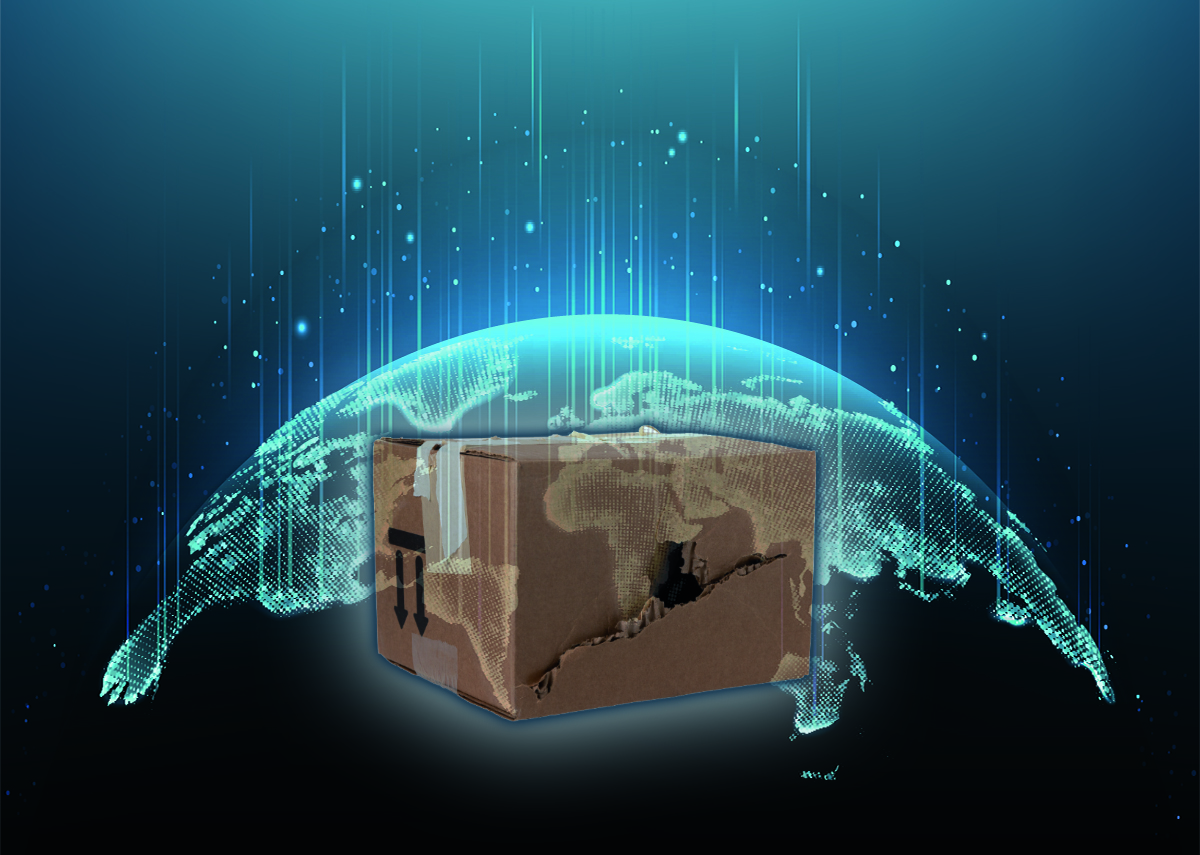The corona pandemic has shown us, impressively and frighteningly at the same time, how fragile and brittle our networked and globalized world has become. Supply chains that had worked for decades collapsed. Flights were canceled for the foreseeable future, trucks were no longer allowed to cross borders and countless container ships were stuck in front of the ports.
And as if that was not enough and in the meantime you got air back with workarounds in the supply chains, the next catastrophe passed: the container ship “Ever Given” lay down in the Suez Canal and ran aground. It blocked all shipping traffic for almost a week. The Suez Canal is one of the most important trade routes in the world. Especially for the clocked supply chains of the European market with China and the Asian trading partner. 30 % of the global container nervolumen is handled annually via this goods highway. Tendency rising. Just over 20,000 containers (TEU standard container) can record the 400 m long and 60 m wide “ever given”. In 2020 around 18,800 ships crossed the Suez Canal.
With container ships, it is usually not important that they arrive quickly, but rather on time. The schedule is tight. If supplier parts from the Far East are missing, production in Europe comes to a standstill.
The Suez Canal is also the most important trade route for Europe and North America for oil from Saudi Arabia, United Arab Emirates, Kuwait and Iraq. As a result of the “ever given” accident, the oil price also increased.
There were also significant delays in the export of machines and machine parts for the Asian market, among other things.
The Suez Canal accident, an unfortunate coincidence during the corona pandemic? Actually less. It's rather surprising that something like this hasn't happened before. While in 1980 the capacity of container ships in global maritime trade was 11 million deadweight tons (dtw), in 2020 it increased to 275 million dtw. That's an increase of 2,500% within 40 years. Deadweight Tons is a measure of how much weight a ship can carry. During the same period, no new sea routes have been added and will not be.
Shortly before the start of the corona pandemic, a survey was carried out on the biggest geopolitical challenges in 2020, which was published as part of the Global Risk Report 2020. It addressed the greatest threats to the world and the population. The report is based on a global survey of around 750 risk experts from business and politics, NGOs and government organizations. Almost 80% of respondents to the World Economic Forum said that this includes economic confrontations and tensions between major powers.
So are domestic political polarization, extreme heat waves, destruction of natural resource ecosystems, cyberattacks on infrastructure, protectionism on trade and investment, populist agendas, cyberattacks on data, recession in a major economy and uncontrollable fires.
Some recognized scenarios such as cyber attacks, protectionism and populist agendas e.g. B. are known to us from recent times.
The experts have not intended or planned a pandemic or a “small” multi-day seaway motorway.
It is now becoming all the more important, especially for logistics, to react to this development and take precautions.
A March 2020 survey of 2,900 senior management respondents found the following:
52% of respondents said changes are being made to global supply chains as a result of global events. 40% plan to reevaluate and only 8% see no need for change. Almost 40% of companies surveyed also said they were planning changes to their workforce.
36% are planning a further approach to automation, 41% are considering revising the current speed of their automation.
Opportunities for change in world logistics for resilient logistics
The regionalization of the supply chains will be one of the consequences. An increased “reshoring” (withdrawal of production to domestic realms - made in Germany) also seems plausible in some areas.
Above all, strikes, but also climate change and acts of war, were already known risks for global supply chains. According to a DHL study on the subject of “Risk & Resilience”, three out of four companies already stated that they had been affected by disorders in the supply chain. Among other things, through the conflicts in the Middle East or the strikes in the US ports. The latter caused the American retailers to damage 7 billion euros. In 2015, disturbances in the production and transport processes exceeded the $ 380 billion in 2011.
Even back then, resilient supply chains were described as a solution to global risks. Risk management and improved controlling were among the solutions.
But ultimately the global supply chain seems to be reaching its limits. New and faster sea routes cannot be built and there will probably not be an alternative in terms of freight transport for a long time. Strictly speaking, the next logical and logistical step would be to be able to beam goods and goods. But as we all know, this is far from any serious planning for the future.
Sustainable logistics
While the costs of sea freight and air transport have fallen steadily since the end of the Second World War, the costs of communication have almost reduced to nothing. The end of the flagpole seems to have been reached.
The risk of rising costs due to the accumulation of global risks makes regionalization and reshoring all the more interesting.
In addition to robotics, autonomous power supply and full automation of logistical processes, regional raw materials and products have long been a serious alternative.
Sustainability is a principle of action for the use of resources in which long-term satisfaction of needs is to be guaranteed by preserving the natural regenerative ability of the systems involved.
Sustainable supply chain
In general, global supply chains are complex and unpredictable. Existing and functioning supply chains are largely not touched. The fear of risks and the possible consequences of deterioration or even failure is too great if the necessary optimization potential and improvement do not bring the desired success. Many companies turn a blind eye to this and know nothing about potential sources of danger. In the event of a crisis, responsibilities can easily be diverted to the complexity of the issue.
Honest and open self-transparency and consciously dealing with possible risk potential (risk management) are an important step in getting a holistic picture of your own supply chains. This is the basis for future strategies to optimize purchasing decisions and supply chain management.
Sustainable intralogistics
Sustainable intralogistics consists of storage and energy efficiency of storage and logistics processes. Especially in intralogistics, automation up to full automation is a decisive advantage and a factor for cost reduction and know-how retention:
- Flexible scalability of intralogistics to current conditions
- Sustainable and autonomous energy supply through renewable energies ( Learn from Amazon Logistics )
- Increasing resilience to changing or unexpected events:
For global competitive regionalization, the points listed in their intersection are a key for each economic sector, which must be designed and adapted accordingly.
For this purpose, it is recommended to work with internationally positioned and experienced specialists.
globalization
Important note: The PDF is password protected.
Please get in contact with me. Of course, the PDF is free of charge. Important note: The PDF is password protected. Please contact me. Of course the PDF is free of charge.
German version – To see the PDF, please click on the image below.
German Version – To view the PDF, please click on the image below.
Why Xpert.Plus ?
Xpert.Plus is a project from Xpert.Digital. We have many years of experience in supporting and advising on storage solutions and in logistics optimization, which we bundle in a large network Xpert.Plus
I would be happy to serve as your personal advisor.
You can contact me by filling out the contact form below or simply call me on +49 89 89 674 804 (Munich) .
I'm looking forward to our joint project.
Xpert.Digital – Konrad Wolfenstein
Xpert.Digital is a hub for industry with a focus on digitalization, mechanical engineering, logistics/intralogistics and photovoltaics.
With our 360° business development solution, we support well-known companies from new business to after sales.
Market intelligence, smarketing, marketing automation, content development, PR, mail campaigns, personalized social media and lead nurturing are part of our digital tools.
You can find out more at: www.xpert.digital – www.xpert.solar – www.xpert.plus


